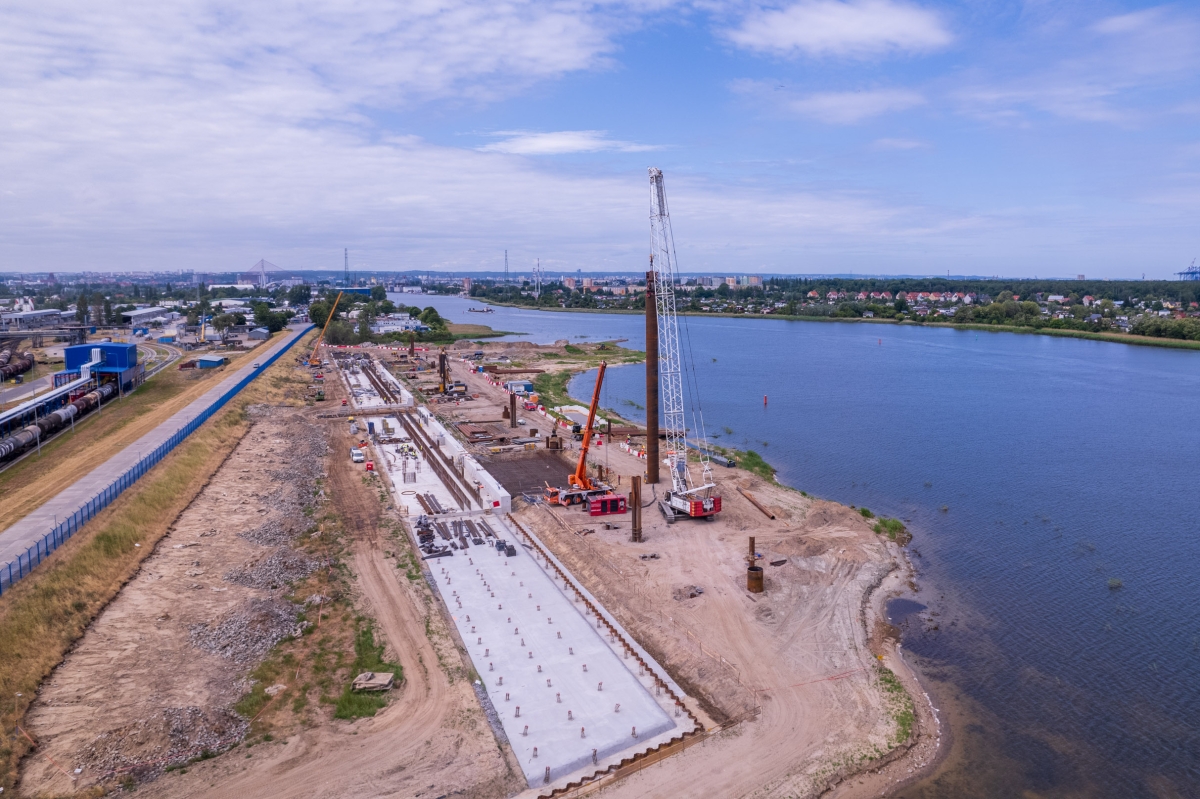
The construction of the Marine Transshipment Terminal includes the construction of a wharf for handling marine vessels of up to 130 meters in length, a draft depth of up to about 5.8 meters and a width of up to 17.6 meters. Among other things, the work includes the construction of a wharf with two loading bays (each with four loading arms), which will be used to handle tankers. The necessary infrastructure will also be constructed: pipelines, steel flyovers, underground and auxiliary infrastructure, which will connect the terminal to the refinery in Gdańsk.
- Currently, 12 pipes are being plunged at the construction site, intended for the dahlings. Self-release hooks will be installed at the top of each of the dales to allow ships to moor to the loading quay. The work is being carried out from land with the help of one of the most modern vibratory hammers in Europe, says Maciej Klecha, construction manager from NDI Group.
The work is not easy, as each pipe weighs more than 32 tons, is 29 meters long and nearly 2 meters in diameter.
- In addition to the work of plunging the steel pipes, reinforcement work is being carried out on the quay superstructure and the docking piers. We are reinforcing the western pier within the cap and the eastern pier, within the reinforced concrete slab. Individual sections of the quay are being concreted. Currently, 11 of the possible 20 have already been concreted," adds Maciej Klecha.
Reinforced concrete work is also underway on the foundation for future communication platforms. Earthwork is underway within the under-construction Dispatch and Technical Facilities Building, while intake pipes are being installed in the intake chamber.
The construction of the terminal will enable the handling of more than one million tons of products, including base oils, marine fuels or biodiesel additives. The implementation of the investment will improve the profitability and security of supply of biocomponents for the production of biobenzine and biodiesel, as well as the transportation of products produced at the Gdansk refinery. The terminal will also relieve the railroad siding operating on the site, where until now the transport of products between the refinery and external transshipment points takes place.
The project will be carried out by a consortium comprising companies from the Sopot-based NDI Group (consortium leader), as well as Biproraf sp. z o.o., BPBM "PROJMORS" Sp. z o.o. and Dipl. Ing. SCHERZER GmbH. The general contractor operates under the so-called "turnkey" formula. He has to both carry out the design work and collect the necessary documentation, as well as carry out all construction and installation work in the hydro, civil, structural, sanitary, mechanical, electrical, automation, teletechnical and road industries. Its responsibilities also include supplying all materials and equipment, conducting all necessary tests and trials, and providing training for operational personnel. The project will be ready in 2025.


